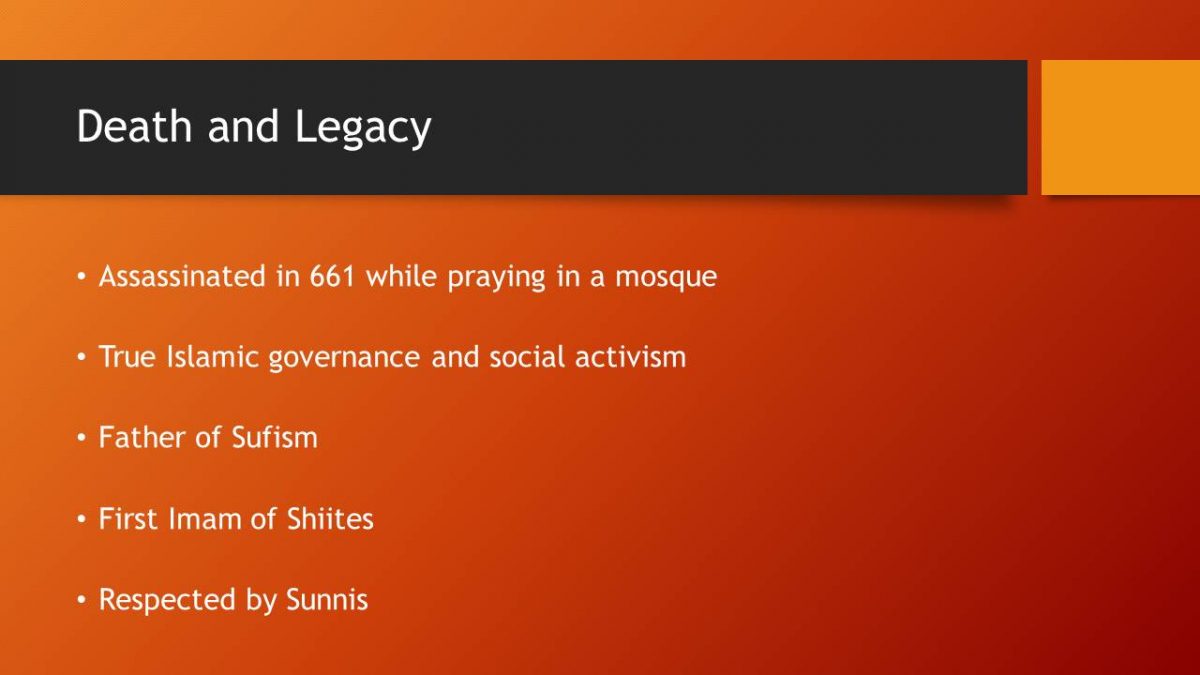Intro
- Ali in Abi Talib is the Fourth Caliph of Islam (656-661).
- Played an important role in Islamic history and religion.
- Second in importance behind Prophet Muhammad.
- Influenced cultural, social, and theological norms.
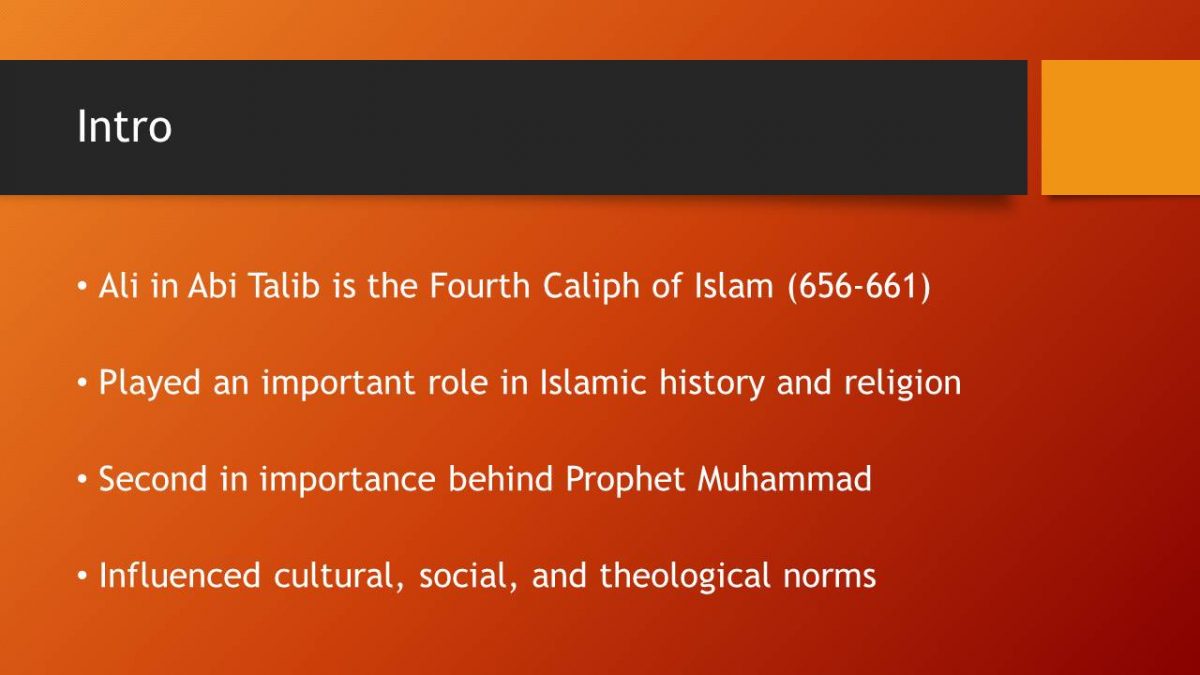
Early Years
- Born in 601.
- Cousin to the Prophet Muhammad.
- Second convert to Islam after Muhammad’s wife.
- Entrusted by the Prophet to write down Qur’an.
- Served as a missionary and a general leading the Muslim community.
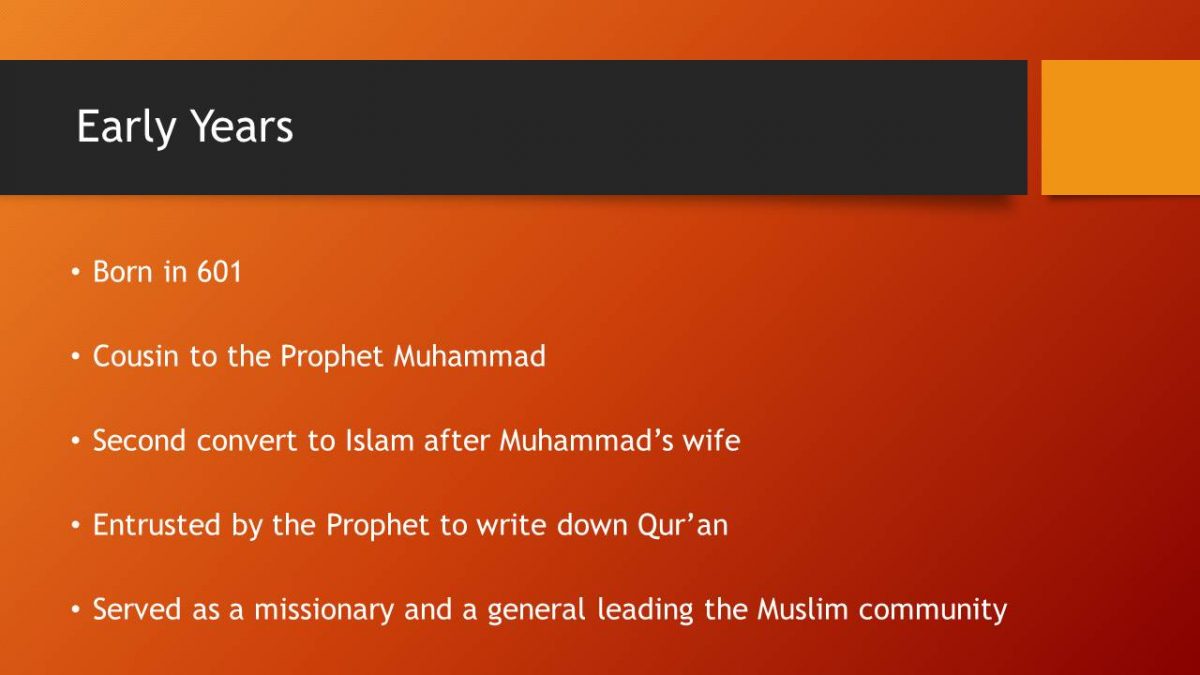
Caliphate
- After Muhammad’s death was in contention to lead.
- Overlooked three times until finally chosen as the Fourth Caliph.
- Faced significant opposition who believed he was not rightfully selected.
- After arbitration and military engagements, the Muslim community was split.
- Ali ruled the caliph which became Shiite Muslims while Muawiyah led a group that would become Sunni Muslims.
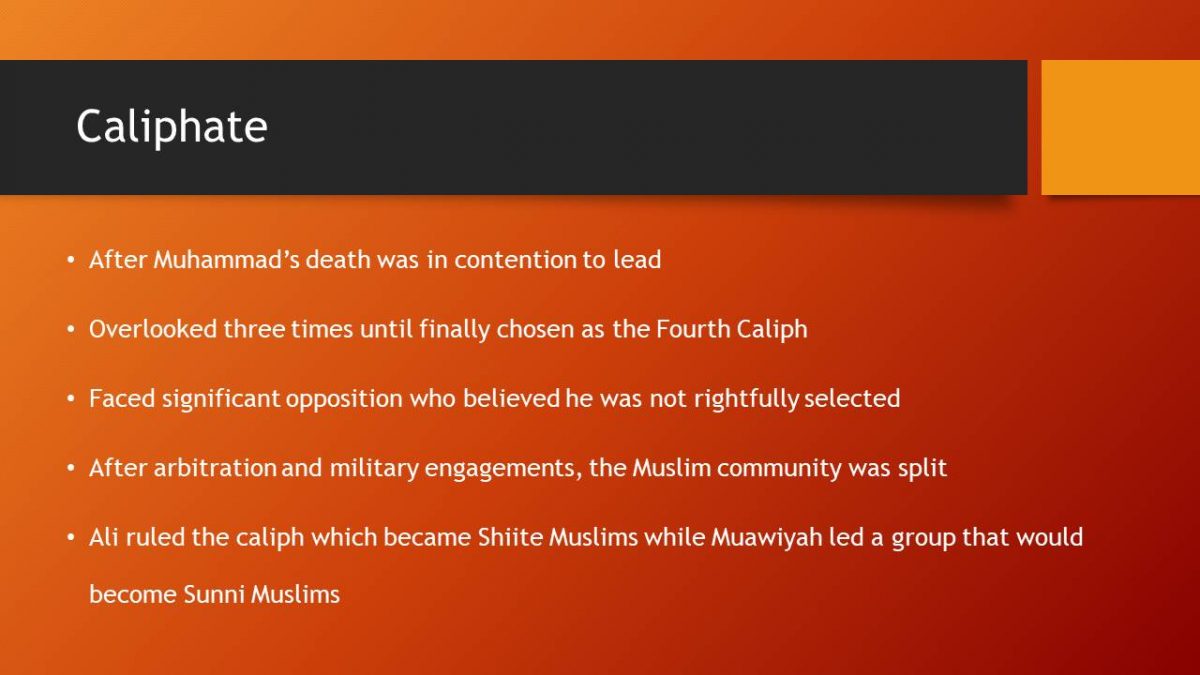
Battles
- Battle of the Camel (656):
- Victorious against Umayyads and Aisha.
- Name comes from the camel that the rebel leader Aisha rode into battle.
- Battle of Siffin (657):
- Beginning of the Muslim Civil war against Muawiyah (First Fitnah).
- As Ali was winning, the enemy put Qu’ran verses on spears and stalled the fighting.
- Arbitration and Split:
- Arbitration decided Ali and Muawiyah have to give up claims to leadership which neither accepted.
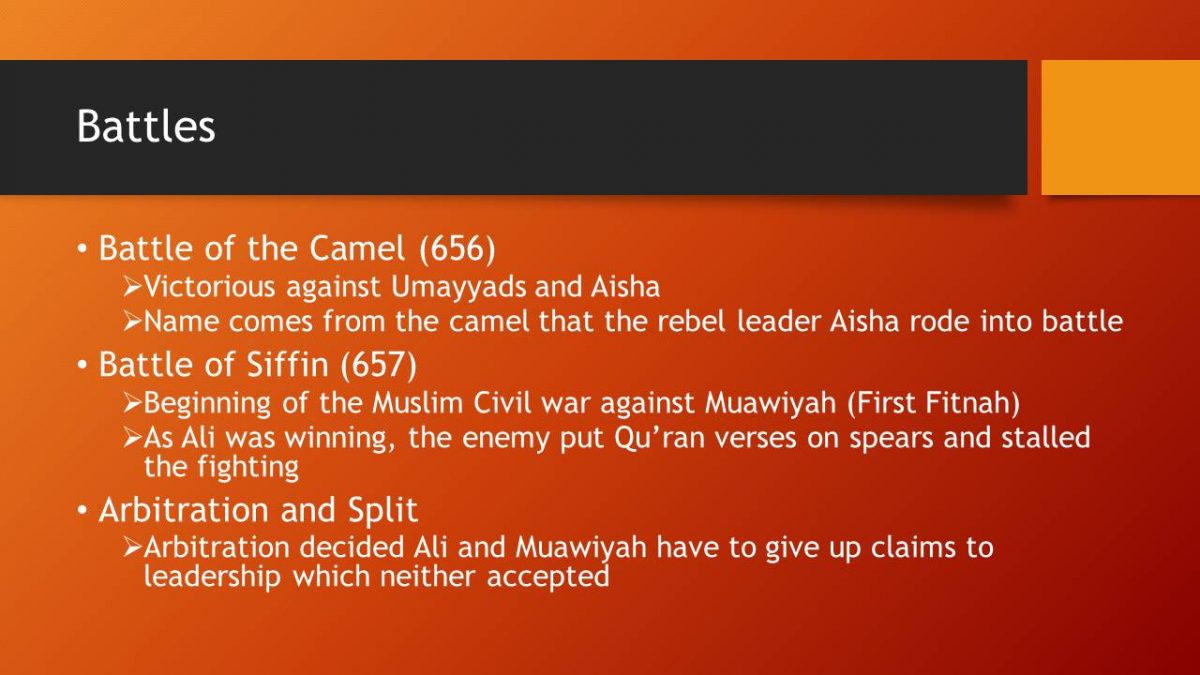
Policies
- Government restructuring.
- Banished those abusing power.
- Developed a form of Islamic religious governance.
- Equal distribution of money amongst people.
- Islamic military and economic guilds.

Islamic Philosophy
- Science of Kalām – scholastic theology.
- Nahj al-Balagh – argument for unity of God.
- Nature of reality and metaphysical connection to God.
- Islamic faith concepts such as justice, endurance, conviction, and jihad.
- Considered patron of the poor.

Death and Legacy
- Assassinated in 661 while praying in a mosque.
- True Islamic governance and social activism.
- Father of Sufism.
- First Imam of Shiites.
- Respected by Sunnis.
